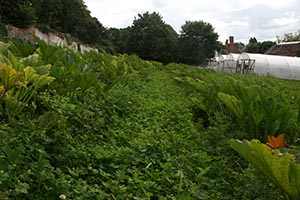
ORC welcomes the publication of a new study by Berkeley University on the yield gap between organic and conventional farming. This new study based on larger meta-analysis than previous studies found that yield differences vary between crop types and management practices, with no significant differences found for yields of leguminous versus non-leguminous crops, perennials versus annuals or developed versus developing countries. Instead, they found the novel result that two agricultural diversification practices, multi-cropping and crop rotations, substantially reduce the yield gap (to 9 ± 4% and 8 ± 5%, respectively) when the methods were applied in only organic systems.
This confirms that there is potential to improve the productivity of organic farming by improving practices. The authors conclude that appropriate investment in agroecological research to improve organic management systems could greatly reduce or eliminate the yield gap for some crops or regions.
